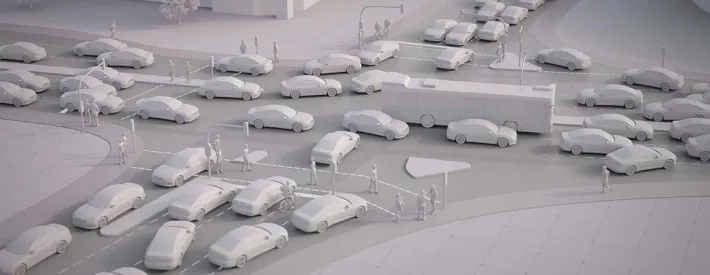Why the government’s investing in self-driving technologies

The UK government is determined to make the country a hub for self-driving technology and it’s putting its money where its mouth is.
Back in February, the government announced the seven winners of its Commercialising Connected and Automated Mobility (CAM) competition, each receiving a healthy share of £81 million in combined public and industry funding to push self-driving technologies forward.
Over £40 million in public grants will be provided via the Centre for Connected and Autonomous Vehicles (CCAV), jointly run by the Department for Transport and the Department for Business, Energy and Industrial Strategy, with industry consortia matching that sum.
The successful self-driving passenger vehicle and freight projects are:
- CAVForth II by Fusion Processing, with partners including Stagecoach, Alexander Dennis, the University of the West of England and Edinburgh Napier University, awarded £10.4m to launch the world’s first full-sized self-driving bus service in Edinburgh.
- Hub2Hub by HVS, with partners including Asda and Fusion Processing, awarded £13.2m to develop a new zero-emissions self-driving HGV specifically for the UK market.
- Multi-Area Connected Automated Mobility by Conigital, with partners including the National Exhibition Centre (NEC), Direct Line, Coventry City Council, Solihull Metropolitan Borough Council, the University of Warwick, Coventry University, dRisk, IPG Automotive and the West Midlands Combined Authority, awarded £15.2m to establish a remote driving control hub for self-driving vehicles.
- Project Cambridge Connector by the Greater Cambridge Partnership, including dRisk, Stagecoach East, IPG Automotive UK, Conigital and Gamma Energy, awarded £17.4m to trial on-demand self-driving taxis.
- Project Harlander by Belfast Harbour, with partners to be confirmed but expected to include Horiba MIRA, Angoka, BT and REE Automotive UK, awarded £11m to deploy a self-driving shuttle service in Northern Ireland.
- Sunderland Advanced Mobility Shuttle by the City of Sunderland Council, with partners including Stagecoach North East, Angoka, Aurrigo, Newcastle University, Swansea University and BAI Communications, awarded £6m to build a self-driving shuttle serving the local university and Royal Hospital.
- V-CAL by the North East Automotive Alliance, with partners including Vantec, Nissan Motor Manufacturing UK (NMUK), StreetDrone, Nokia, Newcastle University, Angoka and Womble Bond Dickinson, awarded £8m to roll-out self-driving and remotely piloted HGVs between the Vantec and Nissan sites in Sunderland.
Why is the UK government so enthusiastic about self-driving vehicles?
Business Secretary Grant Shapps says: “In just a few years’ time, self-driving vehicles could add tens of billions to our economy and create tens of thousands of jobs across the UK. This is a massive opportunity to drive forward our priority to grow the economy, which we are determined to seize.
“The support we are providing today will help our transport and technology pioneers steal a march on the global competition, by turning their bright ideas into market-ready products sooner than anyone else.”
Transport Secretary Mark Harper adds: “Self-driving vehicles, including buses, will positively transform people’s everyday lives, making it easier to get around, access vital services and improve regional connectivity.
“We’re investing in the safe roll-out of this incredible technology to help maximise its full potential, while also creating skilled jobs and boosting growth in this important sector.”
According to government forecasts, 40% of new cars sold in the UK will have self-driving capabilities by 2035, by which time there will be 40,000 skilled jobs in a UK CAM sector worth an estimated £41.7 billion.
Legislation is currently being formulated to enable the ‘timely’ roll-out of self-driving vehicles on UK roads. The proposed ambition is for them to be equivalent in safety to a competent and careful human driver.
A further £600,000 has been allocated to feasibility studies to explore how self-driving technology could improve public transport in parts of the UK currently suffering from congestion.
These projects include: the Hertfordshire Essex Rapid Transit (HERT) route on the A414 to Stansted Airport, the Cambridge Autonomous Rapid Transit (CART) corridor linking the Newmarket Road Park & Ride facility to Cambridge Airport, a segregated corridor for automated shuttles between East Birmingham and North Solihull, and Advanced Very Rapid Transit (AVRT) corridors in Milton Keynes.




